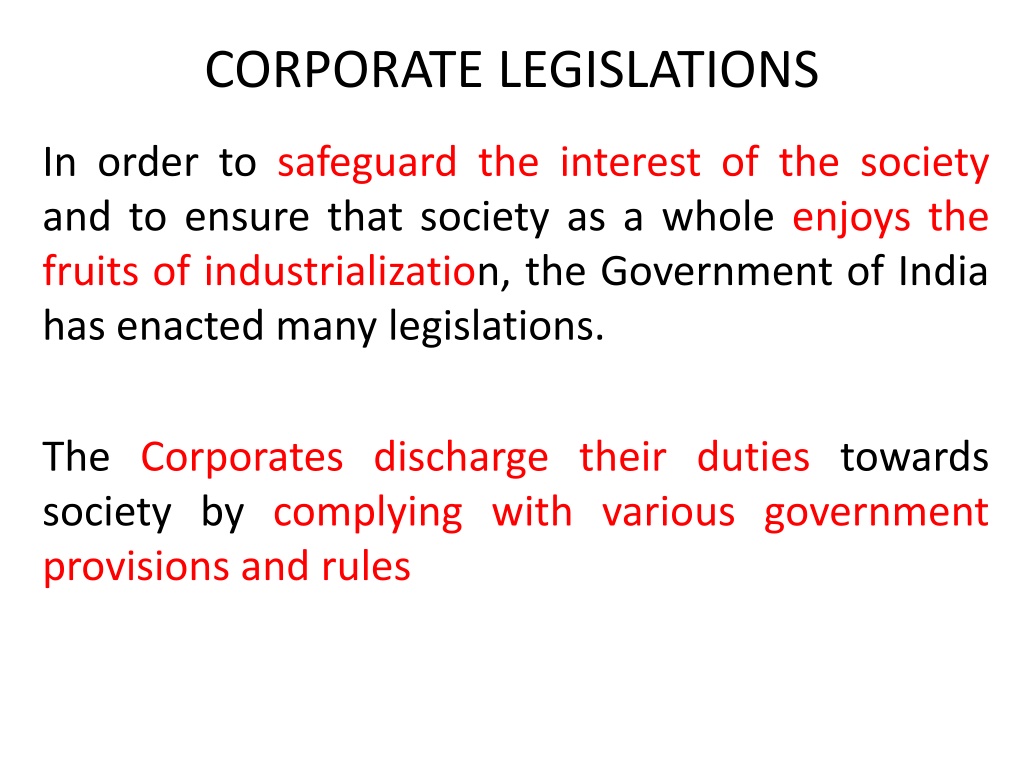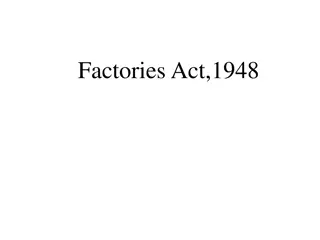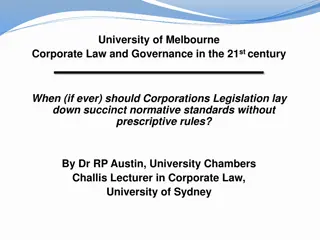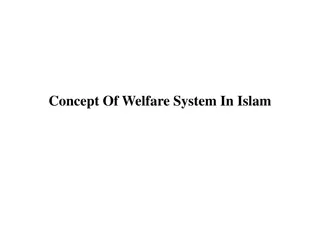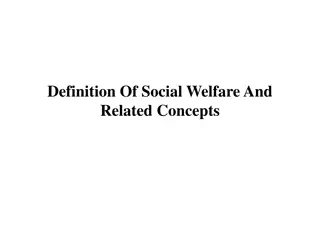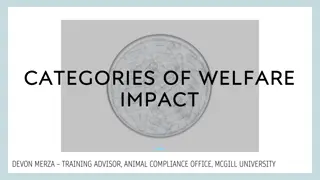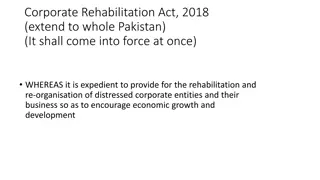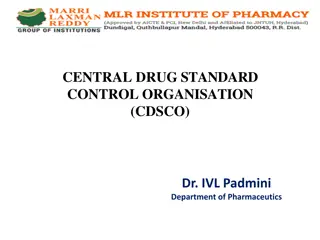Overview of Corporate Legislation in India for Societal Welfare
The Government of India has enacted various legislations to safeguard societal interests and ensure the benefits of industrialization are enjoyed by all. Corporate entities adhere to these laws for societal well-being, with key acts such as the Companies Act, 1956, and the Securities and Exchange Board of India (SEBI) Act, 1992 playing crucial roles in regulating corporate behavior and protecting stakeholders' interests.
Download Presentation

Please find below an Image/Link to download the presentation.
The content on the website is provided AS IS for your information and personal use only. It may not be sold, licensed, or shared on other websites without obtaining consent from the author. Download presentation by click this link. If you encounter any issues during the download, it is possible that the publisher has removed the file from their server.
E N D
Presentation Transcript
CORPORATE LEGISLATIONS In order to safeguard the interest of the society and to ensure that society as a whole enjoys the fruits of industrialization, the Government of India has enacted many legislations. The Corporates discharge their duties towards society by complying with various government provisions and rules
LEGISLATIVE MEASURES LEGISLATIVE MEASURES ENVIRONMENT LABOUR LEGISLATI ONS STAKEHOL DERS CORPORA TE CONTROL PROTECTI ON
CORPORATE LEGISLATION COMPANIES ACT, 1956 The Company Law represents the principal law affecting the organization and management of Corporate business. The main aim of this Act is Minimum standard of business integrity and conduct in the promotion and management of companies Full and fair disclosure of all reasonable information relating to the affairs of the company
CORPORATE LEGISLATION COMPANIES ACT, 1956 Effective participation shareholders and protection of their interest. Enforcement of proper management Governance. Various amendments have been made in the original act from time to time to ensure proper functioning of companies participation in the well-being of the society. and control by performance and and their full
CORPORATE LEGISLATION THE SECURITIES AND EXCHANGE BOARD OF INDIA (SEBI) ACT, 1992 The SEBI Act provides guidelines for capital issues of the corporate for protecting the interests of the investors. Its objectives are Promotes integrity in dealings, a high standard of conduct and good business practices Prohibit unfair trade practices Enhance and promote investors confidence
CORPORATE LEGISLATION Regulate and develop a code of conduct among intermediaries like bankers and brokers in order to make them competitive and professional. Work for orderly and healthy growth of the security markets. SPECIFIC POWERS OF SEBI Regulation of business in stock exchanges Registering and regulating intermediaries like brokers, merchant Work for investors education and training the working of
LABOUR LEGISLATIONS Labour is a common subject for the Central and States. Article 264(2) of the Constitution of India empowers the Union and the State jointly to legislate on issues relating to trade union, industrial and labour disputes, social security, social insurance, employment and compensation including old age pensions and maternity benefits.
LABOUR LEGISLATIONS LABOUR LEGISLATIONS SOCIAL SECURITY INDUSTRIAL HARMONY AND LABOUR RELATIONS COMPENSA TION FUNCTIONI NG
LABOUR LEGISLATIONS 1. FUNCTIONING The Factories Act, 1948 The Shops and Establishment Act, 1948. 2. COMPENSATION The Payment of Wages Act, 1936 The Minimum Wages Act, 1948 The Workmen s Compensation Act, 1923 The Equal Remuneration Act, 1976.
LABOUR LEGISLATIONS 3. SOCIAL SECURITY The Employees Provident Funds and Miscellaneous Provisions Act, 1952. The Employees State Insurance Act, 1948. The Payment of Bonus Act, 1965 The Payment of Gratuity Act, 1972 The Child Labour (Prohibition and Regulation) Act, 1986. The Contract Labour (Regulation and Abolition) Act, 1970
LABOUR LEGISLATIONS The Bonded Labour System(Abolition) Act, 1976. The Apprentices Act, 1961 The Maternity Benefit Act, 1961. 4. INDUSTRIAL HARMONY AND LABOUR RELATIONS The Industrial Disputes Act, 1947. The Trade Unions Act, 1926 Industrial Employment (Standing Orders) Act, 1946.
STAKEHOLDERS LEGISLATIONS The stakeholders of a company, apart from its members are consumers, suppliers, dealers who deal with its products and services. Many manufacturers, traders, multinations and the service sector practices. Hence in order to safeguard the interest of the stakeholders legislations were enacted by the Government of India indulge in unethical a lot of
STAKEHOLDERS LEGISLATIONS They are The Consumer Protection Act, 1986 The Competition Act, 2002 The Prevention of Food Adulteration Act, 1954 The Standards of Weights and Measures Act, 1976 The Agmark Act, 1937. The Prevention of Black Marketing of Supplies of Essential Commodities Act, 1980
STAKEHOLDERS LEGISLATIONS The Indian Standards Institution Certification Act, 1980 The Sale of Goods Act, 1930 Of these, the Consumer Protection Act, 1986 and the Competition Act, 2002 play a vital role in the protection stakeholders. of interest of the
ENVIRONMENTAL LEGISLATIONS Environment(Protection) Act, 1986. National Environmental 1995(compensation in case of accidents due to hazardous substances) Pollution Control Acts Water ( Prevention Pollution) Act, 1974. Air (Prevention and Control of Pollution) Act, 1981 Tribunal Act, and Control of
